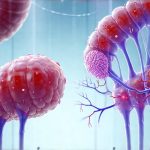Our daily lives are often defined by our ability to initiate action, sustain focus, and navigate challenges – qualities we broadly categorize as motivation, willpower, and productivity. We tend to attribute successes and failures in these areas to personality traits, sheer force of habit, or external circumstances. However, a rapidly growing body of research suggests there’s another, often overlooked player significantly influencing our capacity for achievement: the trillions of microorganisms residing within our gut, collectively known as the gut microbiome. This intricate ecosystem isn’t merely involved in digestion; it actively communicates with the brain through complex biochemical signaling pathways, impacting everything from mood and cognition to stress response and reward processing.
For centuries, the connection between the gut and the brain was dismissed as one-way – primarily the brain influencing digestive function. Now we understand it’s a dynamic two-way street, often referred to as the “gut-brain axis.” The microbiome produces neurotransmitters like serotonin (often called the ‘happiness hormone’), dopamine (linked to reward and motivation), and GABA (a calming neurotransmitter). It also influences the hypothalamic-pituitary-adrenal (HPA) axis, which regulates our stress response. Disruptions in the gut microbiome – caused by factors like poor diet, chronic stress, or antibiotic use – can therefore have profound effects on mental well-being, potentially leading to reduced motivation and impaired willpower. Understanding this relationship is not about blaming bacteria for a lack of drive; it’s about recognizing an opportunity to cultivate a healthier internal environment that supports optimal cognitive function and behavioral regulation.
The Gut-Brain Axis: A Two-Way Street
The gut microbiome communicates with the brain via several interconnected pathways. One primary route involves the vagus nerve, a cranial nerve acting as a direct line of communication between the gut and the brain. Microbial metabolites, small molecules produced by bacteria during digestion, can also influence brain function. For instance, short-chain fatty acids (SCFAs), created when fiber is fermented in the gut, have been shown to cross the blood-brain barrier and impact neuronal activity. Furthermore, the microbiome influences the immune system, which in turn affects brain health. Chronic inflammation, often linked to an imbalanced gut microbiome, has been consistently associated with reduced motivation and increased fatigue. This is where understanding [gut inflammation] (https://vitagastro.com/how-gut-inflammation-affects-energy-and-what-tests-show-it/) can be really helpful.
The influence isn’t unidirectional. Stress, anxiety, and even our thoughts can profoundly affect the composition of the gut microbiome. When we experience stress, our bodies release cortisol, a hormone that can alter gut permeability (often called “leaky gut”), allowing bacterial toxins to enter the bloodstream and trigger inflammation. This creates a vicious cycle where stress disrupts the microbiome, leading to further inflammation and potentially exacerbating mental health challenges. – This highlights the importance of managing stress alongside dietary interventions for optimal gut health. – It’s also why mindfulness practices and other stress-reducing techniques can indirectly support motivation and willpower. [Daily rituals] (https://vitagastro.com/daily-rituals-that-support-a-calm-gut-and-prevent-morning-digestive-distress/) can make a big difference here, too.
The implications are far-reaching. Consider that many common experiences impacting productivity – like procrastination, decision fatigue, or difficulty focusing – may have a partial biological basis rooted in the gut microbiome. While psychological factors undoubtedly play a role, increasingly we understand there’s a significant physiological component at work. – Improving gut health isn’t presented as a quick fix but rather as an integral part of holistic self-improvement and performance optimization.
How Microbial Imbalance Impacts Motivation
A dysbiotic gut – one characterized by an imbalance in microbial composition – can significantly impact motivation on several levels. Firstly, it can influence dopamine production and reward pathways. Certain bacteria are involved in synthesizing precursors to dopamine, the neurotransmitter crucial for feelings of pleasure and motivation. An unhealthy gut microbiome might lead to reduced dopamine levels, making it harder to experience joy from accomplishments or feel driven to pursue goals. – This can manifest as apathy, lack of enthusiasm, or a general sense of listlessness.
Secondly, chronic inflammation associated with dysbiosis disrupts brain function and impairs cognitive flexibility. Inflammation interferes with synaptic plasticity – the brain’s ability to form new connections – which is essential for learning, problem-solving, and adapting to change. This can make it difficult to overcome obstacles or adapt plans when faced with challenges, ultimately hindering productivity. – It explains why individuals experiencing chronic inflammation often report feeling mentally sluggish or overwhelmed.
Finally, an imbalanced gut microbiome can contribute to increased levels of cortisol, the stress hormone. Elevated cortisol chronically suppresses the immune system and interferes with cognitive function. Sustained high cortisol levels deplete willpower reserves, making it harder to resist temptations, stay focused on tasks, and manage time effectively. – It’s a feedback loop: poor gut health leads to higher stress, which further exacerbates gut imbalance, creating a cycle of diminished motivation and productivity. Understanding how [fluctuating hormones] (https://vitagastro.com/how-fluctuating-hormones-influence-appetite-digestion-and-nausea-sensitivity/) impact this is important too.
The Role of Specific Gut Bacteria
While the overall diversity and balance of the microbiome are crucial, specific bacterial species have been linked to motivation and willpower. Bifidobacterium and Lactobacillus strains, often found in fermented foods like yogurt and kefir, have shown promise in studies related to mood regulation and stress reduction. Research suggests these bacteria can influence GABA production, promoting a sense of calm and reducing anxiety which, as mentioned earlier, is directly linked to cortisol levels. – Supplementing with probiotics containing these strains may be beneficial for some individuals, but it’s crucial to remember that microbiome composition varies greatly between people, so what works for one person may not work for another.
Conversely, an overabundance of certain bacteria associated with inflammation – like those belonging to the Enterobacteriaceae family – has been correlated with reduced motivation and increased risk of mood disorders. This is why dietary interventions focused on reducing inflammatory foods (processed foods, sugar, unhealthy fats) are often recommended. – The goal isn’t necessarily to eliminate these bacteria entirely but rather to restore balance within the microbiome ecosystem.
Emerging research also points to the importance of keystone species – those that exert a disproportionately large influence on the overall microbial community. Identifying and nurturing these keystone species is an area of ongoing investigation, with potential implications for targeted interventions aimed at optimizing gut health and cognitive function. [Gut acidity] (https://vitagastro.com/how-to-balance-gut-acidity-and-improve-nutrient-absorption-through-smart-eating/) plays a role in this balance as well.
Dietary Strategies for Enhancing Gut Health & Productivity
Improving your gut microbiome isn’t about following restrictive diets or eliminating entire food groups. It’s about making informed choices that nourish beneficial bacteria and reduce inflammation. – A cornerstone of this approach is increasing fiber intake. Fiber-rich foods, such as fruits, vegetables, whole grains, and legumes, act as prebiotics – food for the beneficial bacteria in your gut.
Here’s a simple three-step process to start:
1. Increase fiber gradually: Adding too much fiber at once can cause digestive discomfort. Start with small increases and slowly work your way up to the recommended daily intake (around 25-30 grams).
2. Incorporate fermented foods: Yogurt, kefir, sauerkraut, kimchi, and kombucha are all excellent sources of probiotics – live microorganisms that can help repopulate your gut with beneficial bacteria.
3. Reduce processed foods, sugar, and unhealthy fats: These contribute to inflammation and disrupt the balance of the microbiome.
Beyond diet, other lifestyle factors play a crucial role. – Managing stress through mindfulness, meditation, or yoga can significantly reduce cortisol levels and support gut health. – Regular exercise also promotes microbial diversity and reduces inflammation. – Prioritizing sleep is essential for overall health, including gut health, as sleep deprivation disrupts the microbiome and increases stress hormones. Ultimately, cultivating a healthy gut microbiome is an investment in your long-term well-being and productivity. It’s about recognizing that our physical and mental states are inextricably linked and taking proactive steps to nurture both. – And remember how [meal texture] (https://vitagastro.com/how-meal-texture-and-temperature-influence-nausea-fullness-and-gut-response/) can also impact digestion! – Don’t forget the importance of [gut transit] (https://vitagastro.com/how-to-naturally-support-gut-transit-and-reduce-pressure/).


















